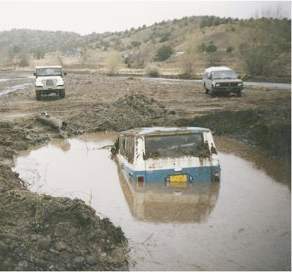
Insuring seasonal or recreational homes is different from insuring your primary residence, although you might decide that any kind of home insurance is akin to gambling and likely to lose you money in the long run.
The main difference from an insurance perspective is that the recreational home is not occupied year round. From an insurance company perspective this means there’s an increased risk.
In most cases, you can buy insurance for your seasonal home as an extension of your primary home insurance policy. Types of policies and restrictions vary by insurance company, so consider talking to your insurance adviser before you purchase the place. And check to see what coverage is available — guaranteed replacement value, replacement value or cash-only coverage.
– As a result of the increased risk, most policies for seasonal homes offer restricted coverage with options for adding additional coverage. For example, theft, burglary and vandalism coverage may not be included automatically in a seasonal policy, so check with your agent to see if this is available.
– Make sure if you plan to rent your seasonal property, or if you’re buying a seasonal condominium and plan to be part of a rental pool, that you let your insurance agent know. Rented seasonal properties are handled differently from seasonal homes that only you and your family use.
– Security can often be a concern with seasonal properties since they are generally in more remote areas and have less supervision. If there are no full-time neighbours or there is no caretaker around your property, insurance may be more costly – another reason to do without it.
– When looking to purchase a seasonal property, consider the proximity to a firehall. If the property is not serviced by a fire department, it may be more difficult and expensive to purchase insurance.
– Additional liability insurance is important if you are buying waterfront property. Also insurance for boats, personal watercraft and all-terrain vehicles is important to consider.
– Liability can also be a consideration if you are purchasing a seasonal home with another family or multiple owners. Your insurance needs change when the use of a seasonal property includes more than one owner.
2 Responses
Hi there,
My husband and I are in the process of purchasing a cabin in remote east TN. It is off-grid and we are currently learning (by trial) how to get a setup for power via inverter with back up propane generator. We will have a propane refrigerator, stove, water heater and lights (lights are already installed). This will be a seasonal property for us and we would like to insure our investment. You noted being self insured and having a rider. How do those options work? We live in Southeastern Florida and are covered by Citizens Insurance (state insurance due to lack of ins companies willing to write policies in this part of the state).
Any advice and opinions are greatly appreciated!
~Becky
I currently have minimal coverage as an additional rider on another policy that I carry. Once I am off-grid year round I am not certain what I will do. I am leaning toward self insuring. Although the additional rider in place at present costs very little, I have not needed it in 15 years. When I consider the amount of money I have paid out over the last 25 years for home owners insurance against zero claims I’m inclined to take my chances. Maybe a minmum liability policy to protect me if someone might get injured on my property would be all.